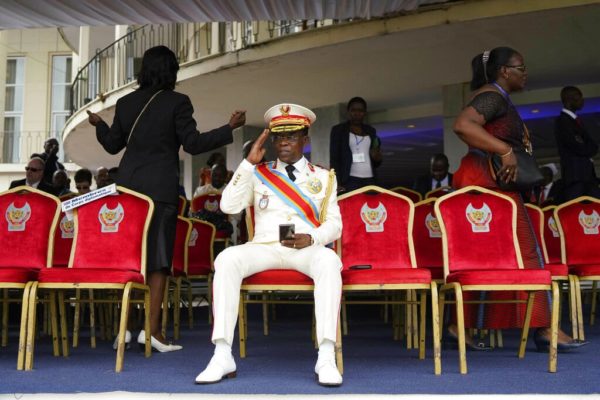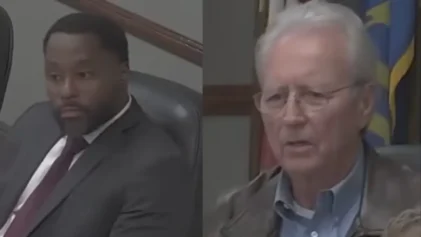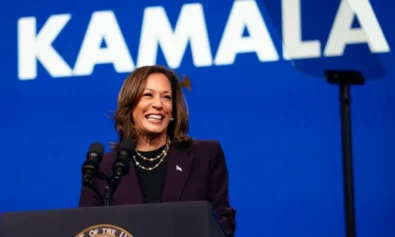KINSHASA, Congo (AP) — Congo’s Felix Tshisekedi has been sworn in as the new president, cementing the Central African nation’s first peaceful transfer of power since independence nearly 60 years ago.
He takes over from Joseph Kabila, who led the country since 2001.

An officer salutes as he waits for other guests for Congolese President elect Felix Tshisekedi inauguration in Kinshasa, Democratic Republic of the Congo, Thursday Jan. 24, 2019. (AP Photo/Jerome Delay)
Tshisekedi paid tribute to his father, the late opposition icon Etienne, who never achieved the top post his son has won.
Honoring his father, Tshisekedi referred to him as “president” — a nod to how his father defiantly declared himself president after losing a disputed election in 2011 to Kabila.
The inauguration crowd erupted in cheers to the reference to Tshisekedi’s father.
Congo’s new leader noted his father’s “moral rigor” and fight for democracy over decades. Etienne Tshisekedi had posed such a charismatic challenge to Kabila that after he died in Belgium in 2017, Congo’s government did not allow his body to be brought home. His son’s spokesman has said that will be corrected once Felix Tshisekedi takes office.
Questions remain about the disputed Dec. 30 vote, but Congolese largely have accepted Tshisekedi’s win in the interest of peace.
The 55-year-old Felix Tshisekedi, was inaugurated at the Peoples’ Palace, the seat of the national legislature in the capital, Kinshasa. Supporters who for decades backed the elder Tshisekedi’s pursuit of power streamed into the venue with Congolese flags tucked into their hair or wearing leopard-print caps and cravats. Some fainted in the heat.
Just one African head of state, Kenya’s President Uhuru Kenyatta, was seen at the ceremony after the African Union and the international community expressed reservations over alleged election fraud that brought Tshisekedi to power. The United States and others this week have said they will work with the new leader but did not offer congratulations.
Many Congolese hope that Tshisekedi will bring change after 18 years of rule by President Joseph Kabila, who in a final address on Wednesday night urged the country to unite in support of the incoming leader. He said he was stepping aside with no regrets.
Tshisekedi now must work with a legislature dominated by members of Kabila’s ruling coalition, likely restricting the chances of dramatic reforms in a country that remains largely underdeveloped and plagued by dozens of rebel groups.
Few had expected an opposition victory in Congo, where Kabila has ruled since 2001 and hung on for more than two years of turbulent election delays.
Declared runner-up Martin Fayulu had mounted a court challenge to Tshisekedi’s win, alleging massive rigging and demanding a recount. The Constitutional Court on Sunday rejected it.
Outside court, Fayulu accused Kabila of making a backroom deal with Tshisekedi as it became clear the ruling party’s candidate did poorly at the polls. Observers have said Fayulu, an opposition lawmaker and businessman who is outspoken about cleaning up Congo’s sprawling corruption, was seen as a bigger threat to Kabila and his allies in the country of sprawling mineral wealth.
Few Congolese have taken up Fayulu’s call for peaceful protest, appearing instead to accept Tshisekedi’s win as long as Kabila is on the way out and there is peace.


